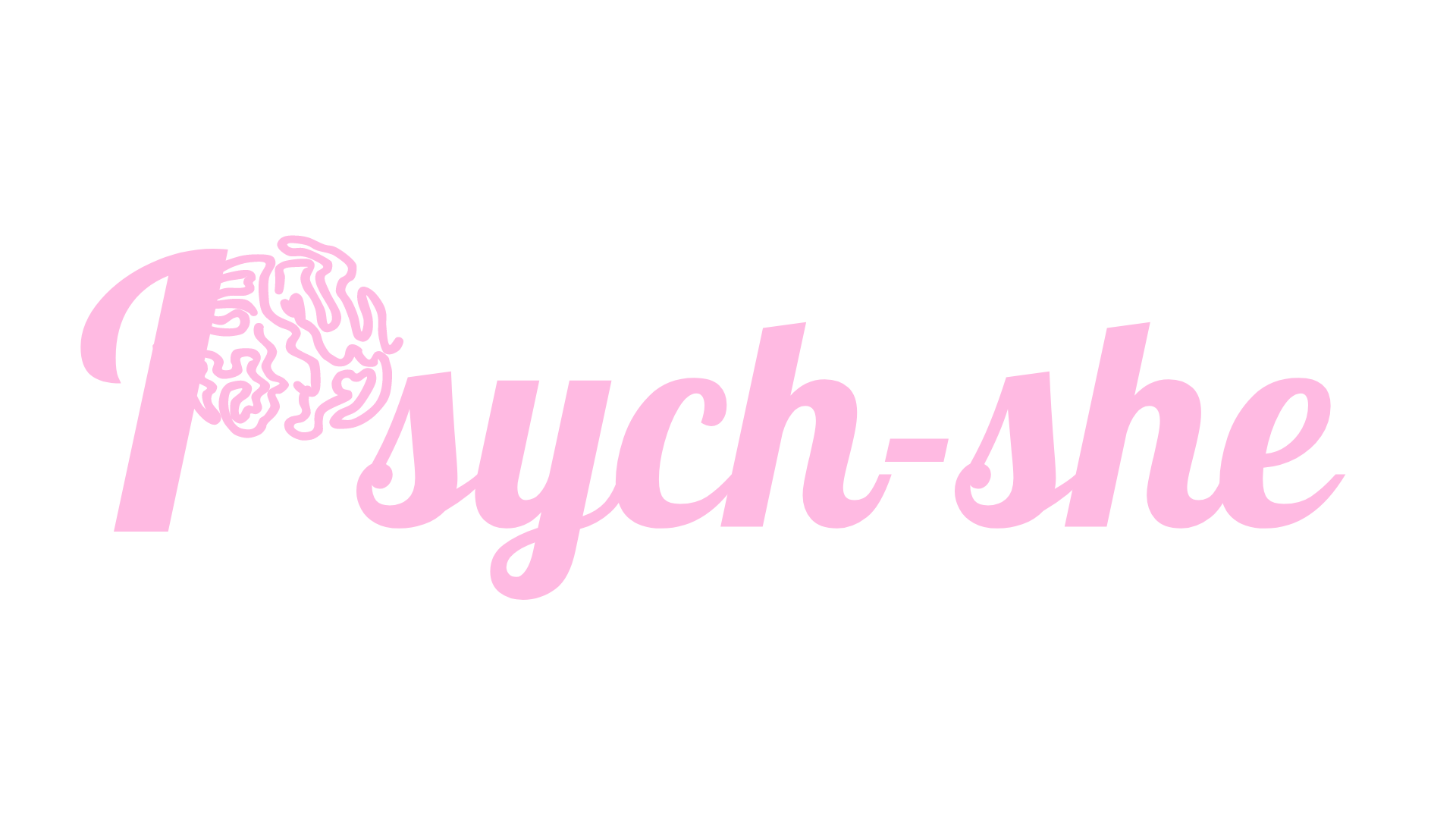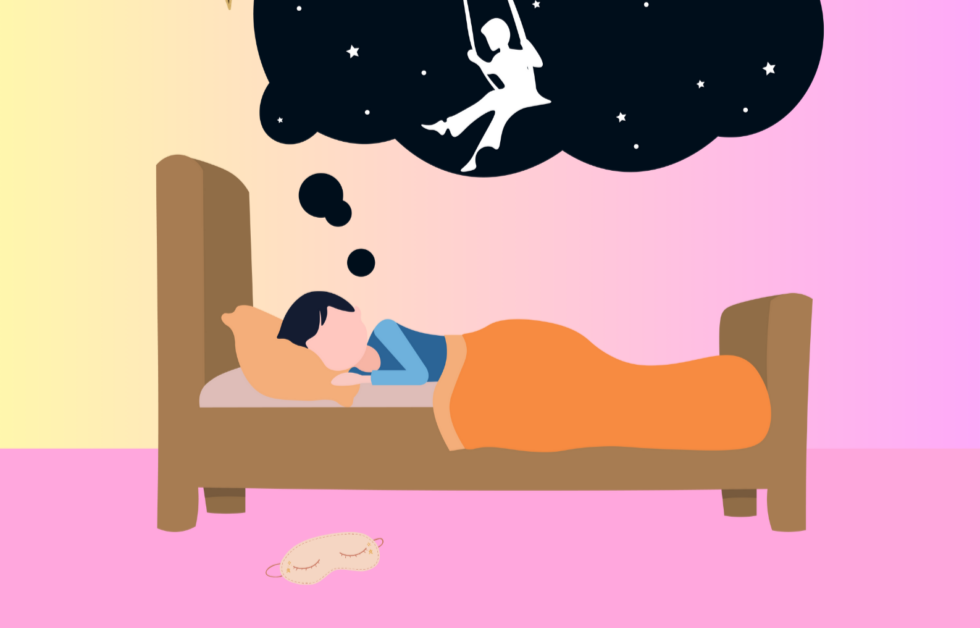Dreams can be baffling at the best of times, let alone when you’re having the same exact one over and over again. Theresa Cheung, dreams expert, explains the possible meaning of reoccurring dreams, as I delve into my own and a handful of other women’s bizarre dreams.

A giant pig with black eyeliner towered over me standing upright on two feet as he glared into my soul. He stumbled towards me and aggressively snatched my bank card, waving it over my face, taunting me with it. I stood petrified in the middle of a random field staring at this intimidating pig completely panicked by what to do next. Thankfully this bizarre encounter was nothing more than a reoccurring dream. To have this dream even once would’ve been strange enough, but between the ages of 11 to 16 years old, this was repeated over and over again. Everything about this dream felt absurd, from the fact I’ve never eaten bacon and at 12 years old hardly even knew what a bank card resembled.
I’ve been told many times that dreams have meaning, but I’ve found it hard to comprehend a menacing human size pig stealing from me, reflected my reality. Still, thinking about the fact my subconscious mind was continually showing me the exact same far-fetched story repeatedly fascinated me. Six years on since I’ve had the dream but I still find myself thinking back to that reoccurring dream in bewilderment. I was left pondering the why of this dream, stumped as to what my subconscious mind could possibly be trying to show me.
I think most women in their twenties can relate to being eager for answers wherever we can get them, trying to figure out who we are and more importantly who we will become. I for one, am continuously looking for ways to find out more about myself. A sucker for a personality quiz, an astrology chart and all the other online traps which attempt at offering meaningless information about who we are. So when we fall asleep and lose all control of our thoughts and feelings, the possibility that dreams can give us an honest insight into our subconscious brain feels like a more reliable way to understand ourselves better. Even more so when thinking about reoccurring dreams, which feel like an even more insistent way to alert us to something significant.
Dream consciousness analysist, Theresa Cheung, says “Reoccurring dreams is your mind being like a teacher, once you learn the lesson the dream is trying to tell you, it will stop. Once you’ve decoded it successfully and most importantly taken action in your waking life that’s when the dream will no longer continue. People often tell me their reoccurring dreams show them in their school life, that’s because they’re highlighting what we haven’t learnt yet.”
As someone who can barely remember dreams at the best of times, a reoccurring dream did stop me in my tracks. I would wake up in the morning full of questions, why had I had it that specific night? Why was it a pig? Why did I care so much about the card? The list of ambiguous questions went on, it made me look at everything happening in my life. From the insignificant silly stuff, like what I was having for breakfast to analysing my relationship with family members. Suddenly I was hyper fixated on trying to decode its hidden meaning. Luckily for me, at the age of 15 there wasn’t an abundance of serious or complex matters I had to work through, so the seriousness of the dream’s meaning went as far a reconsidering my GCSE choices. I dread to think what will happen when faced with a reoccurring dream in my twenties, the list of possible things to overthink could be endless.
It was reassuring when speaking to other women that many also confessed to experiencing some slightly abnormal reoccurring dreams. It was nice to know I wasn’t the only person who wasn’t dreaming about your teeth falling out or seeing an ex-boyfriend at a park, which seem a lot easier to unpack. In fact, Theresa quoted philosopher Freud and said: “The weirder the dream, the more profound the meaning.”
21-year-old Jaiya, told me about her “intense kidnapping dream” which she’s had at least five times over the past few years. Jaiya said: “I’m kidnapped into a caravan and these people are forcing me to get married to someone I don’t know. I know my dad is there at the same time looking for me, but I don’t know where and I’m thinking about the fact he won’t know which caravan I’ll be in. Suddenly I am being forced into a marriage. I always think oh my god I’ve been here before, how has this happened to me again?!”

Google’s been my friend when it comes to finding some way to rationalise my own dream, the minute I wake up and remember I’ve had it I’m straight on safari typing out what happened. Unsurprisingly google isn’t filled with many explanations about a pig stealing a bank card, it’s a bit niche. But for Jaiya the answers were slightly easier to find, Jaiya said: “I found lots of responses when I looked it up, some I related too, others not really. I read it means you’re feeling lost or trapped in something, which I can definitely relate to. I often find myself in situations where I’m trying to please other people, especially in relationships. I feel like I’m trapped even when I’m not, it’s anxiety filling.”
Theresa’s thoughts on this dream were not dissimilar to what Jaiya had resonated with her when she looked online. Theresa says “the symbolism of caravan parks is temporary, and a live in the moment attitude to life, which is maybe where she’s at right now. But then the voices of authority, symbolised by her father, want something more stable for her. In her dream she isn’t quite ready to settle down. I would encourage her to think about how she feels about being in the caravan park. She needs to ask herself whether she wants to settle down and be more conventional in life or not. It’s more thinking about the emotions the dream represents.”
Sometimes I find with so many contrasting opinions on what a dream can mean it’s overwhelming and it’s hard to know how to find the information which is accurate or relevant to me. Theresa told me that “the archetypal and generic dream meanings found online are helpful because they kick start people thinking symbolically, looking beneath the literal. However, if one person fears dogs and another loves dogs, they will have very different meanings to a dream about a dog.” So she urged people to search for “their own personal meaning when reflecting on reoccurring dreams as they’ll unveil something personal.”
A one-off dream is easy to forget but when the exact same story is being recreated in your mind over and over, it’s harder to overlook. After Theresa shared that “the only way to stop a reoccurring dream was to take action” in your real life, I have wondered what changed which meant my reoccurring dream stopped at 16. I couldn’t recall a “euphoric moment of realisation” that Theresa said people get when you finally realise what the dream is telling you. But realistically, life has drastically changed from the age of fifteen to twenty-two, so although it wasn’t a conscious decision it would make sense that whatever the dream was telling me in that time has been resolved.
22-year-old Gaby told me about her reoccurring dream she’s been experiencing, she explained: “I’m talking to a random person, in a random place, we’ll be chatting normally, and they’ll be so friendly. Sometimes they’re walking towards me and other times they’re in a car. Then all of a sudden, they’ll have a sinister look on their face, and they’ll stop whatever they’re doing and just start chasing me. It’s really harrowing in the moment.”
Although a dream about being chased doesn’t seem that hard to understand Gaby is yet to identify what it could mean, she said: “I wouldn’t say it’s a stress dream, it just happens randomly. I do wake up and wonder why it happened. I feel funny if I’ve had that dream, it’ll crop up in my brain throughout the rest of the day, but I don’t have any idea why I have it”.
I asked Theresa about Gaby’s dream and she believed it was showing her that she wasn’t “facing an aspect of herself that is crying out for her attention. It could be toxic emotions, like jealousy, anger or resentment.” She said to finally stop having the dream she would need to face the emotions. “It needs to be acknowledged; the dreams don’t want to be ignored.”
It’s apparent from the other women I spoke to and reflecting on my own odd experience with reoccurring dreams that for most of us they do feel pretty impossible to understand. The more we’re told they’re telling us something important and they hold purpose, the more I feel this dooming pressure to solve this weird puzzle going on inside my subconscious brain. But from speaking with Theresa, who strongly advocates for recognising the meaning of dreams, I found that actually the importance of them is their ability to make people look inwards. At the very least I can say having an outlandishly strange dream about a pig made me stop and reflect on my thoughts and feelings in a way that otherwise I wouldn’t have done.
Theresa says “There is an invisible world going on inside you and that is the world that will bring you true peace. Trying to find that externally, through work, external relationships or money, won’t give that to you.” I think sometimes, myself included, we think a dream is trying to tell us one singular thing. Like we must break up with our boyfriend, or we need to quit our job or move to a new city, when maybe their purpose is reminding us of an emotion and giving us the moment to pause and reflect.
Expert insight: Theresa Cheung
Theresa Cheung is a dream consciousness analyst who is an expert in spirituality, intuition and the science of consciousness. Theresa is Uk Times bestselling author who has written multiple books discussing and unpacking the meaning of dreams, her most well known; The Dream Dictionary from A-Z. She has spent years researching and promoting the transformative power of dreams, whilst working alongside leading scientists and neuroscientists to research the consciousness state.




